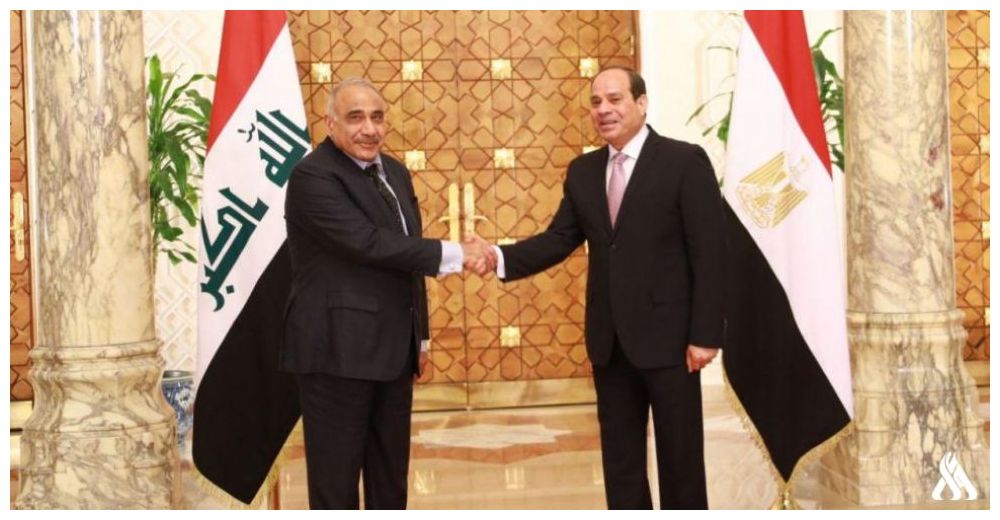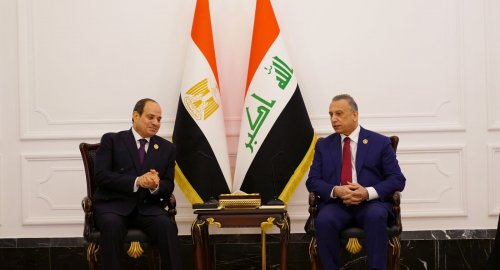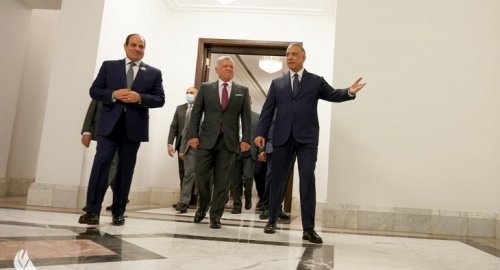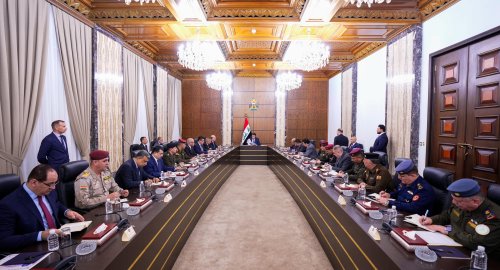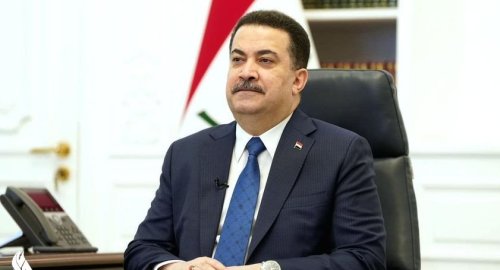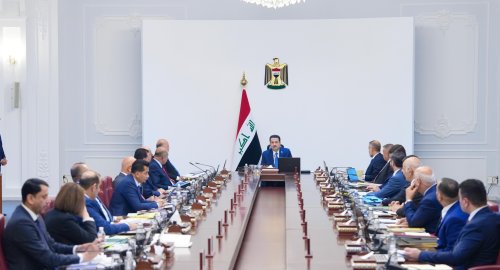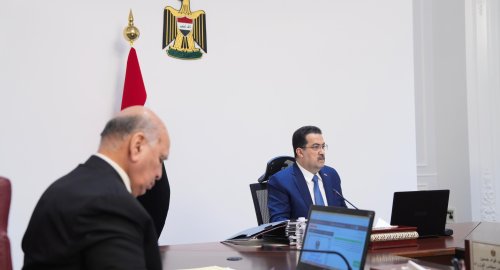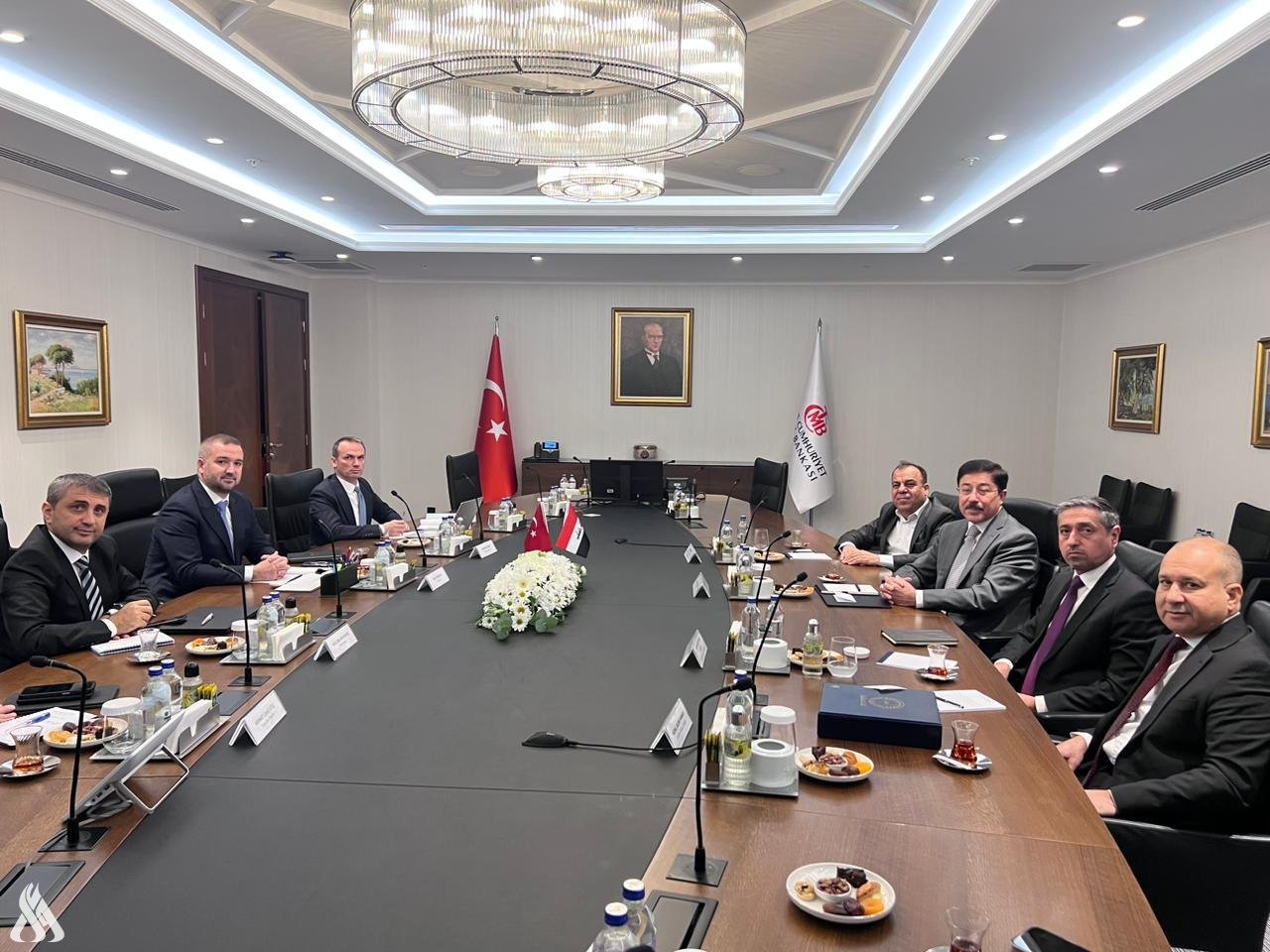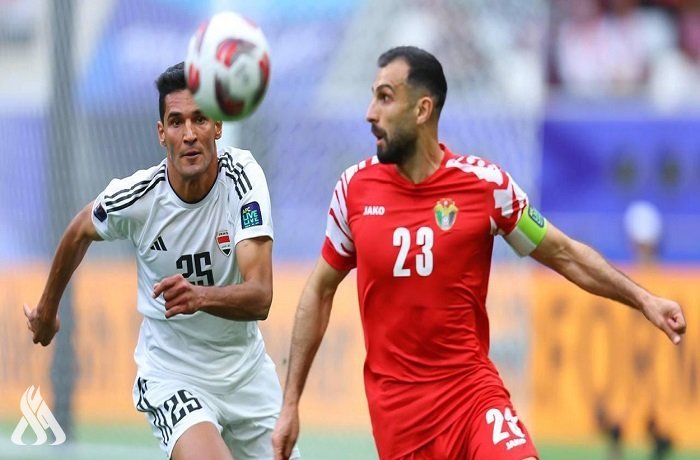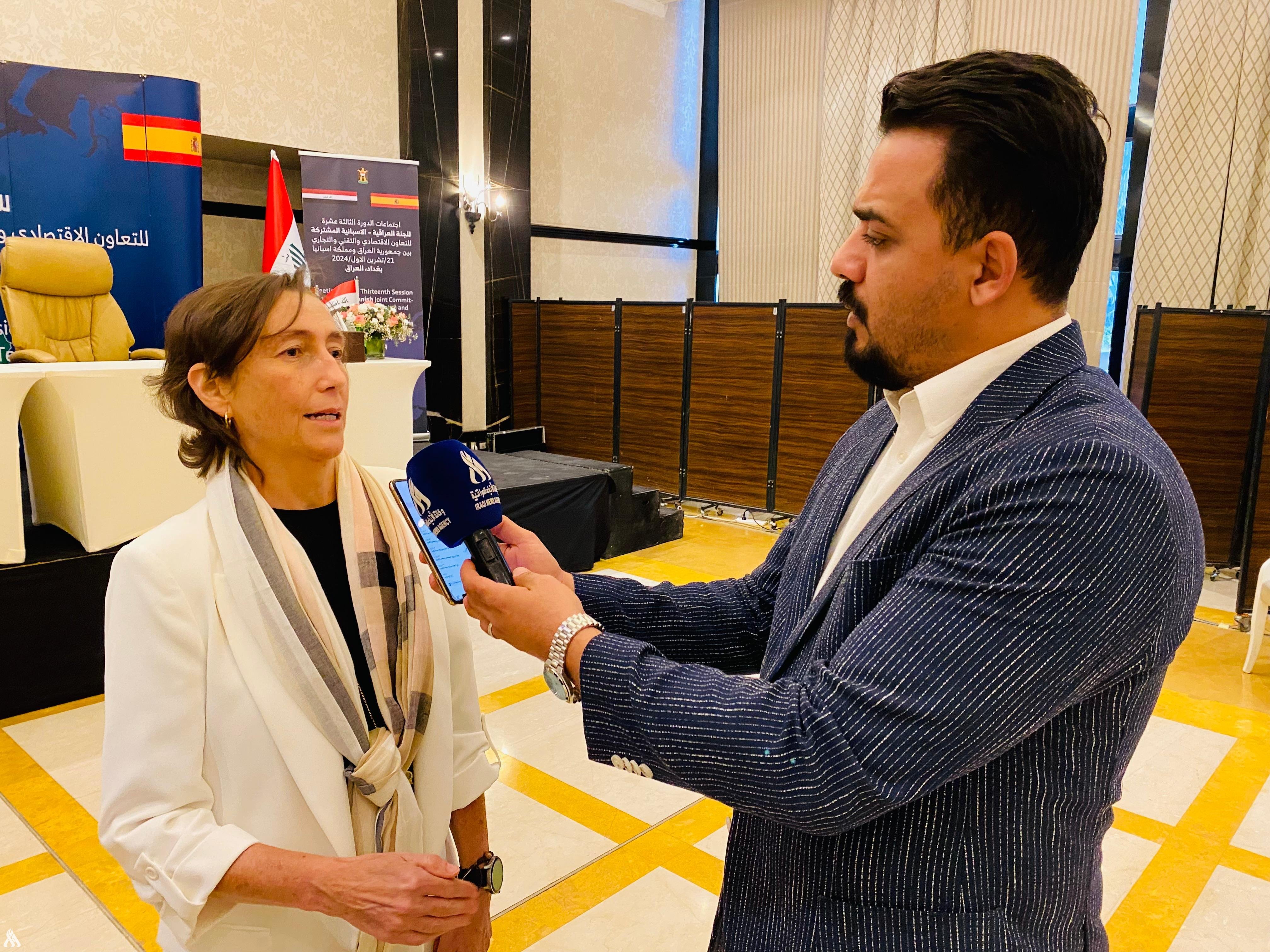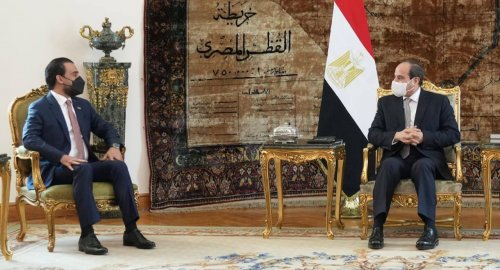
Egypt to Iraq: We are keen to strengthen bilateral relations

- 15-09-2021, 18:18
INA – BAGHDAD
President of the Republic of Egypt Abdul Fattah All-Sisi affirmed to the Parliament Speaker Mohamed Al-Halbousi, on Wednesday, Cairo's keenness to strengthen bilateral cooperation mechanisms with Baghdad.
Al-Halbousi met President Al-Sisi, at the Federal Palace, as they discussed the growing relations between the two brotherly countries, and the importance of working to enhance the prospects pf strategic cooperation, according to a statement by the media office of the Speaker of the Parliament, received by the Iraqi News Agency (INA).
During the meeting, Al-Halbousi stressed high appreciation for President Al-Sisi’s efforts in supporting Iraq, praising Egypt’s supportive role in restoring stability in Iraq, expressing his aspiration to develop cooperation between the two brotherly countries at the bilateral level as well as, to enhance and activate the tripartite cooperation between (Iraq, Egypt and Jordan), pointing to the importance of parliamentary cooperation in Arab, regional and international forums.
For his part, President Al-Sisi affirmed his country's keenness to continue developing cooperation with Iraq in all fields and at various levels, whether at the bilateral level or through the tripartite cooperation mechanism with the Kingdom of Jordan.
Al-Sisi expressed Egypt's full readiness to transfer the experience of its development experience to Iraq, in order to achieve its stability and restoring the country’s historical position, its active Arab and regional role, and consolidating its position in the Arab world.
He highlighted “the critical importance of the upcoming parliamentary elections in shaping the features of the future period in Iraq and strengthening its national institutions, as well as Egypt’s rejection of all foreign interference in Iraq’s affairs, while adhering to the principles of mutual respect for the sovereignty of states and non-interference in their internal affairs,”
The Cabinet holds the 47th session, decisions included
- politics
- 07:07
CBI Urges Turkey to Open Accounts for Iraqi Banks
- Economy
- 24/11/14
Salah nominated for Best Men’s Player of the Year award
- Sport
- 24/11/15
Defense Minister arrives at Iraqi-Syrian border
- Security
- 24/11/14
